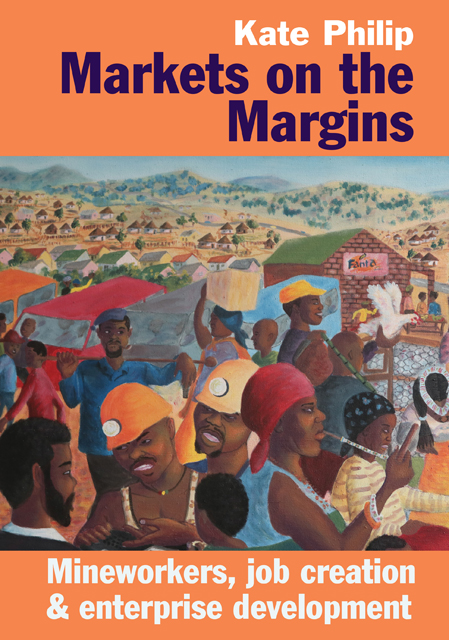Book contents
- Frontmatter
- Contents
- List of Illustrations
- Preface
- Acknowledgements
- Abbreviations
- 1 Introduction: Setting the scene
- 2 The 1987 Mineworkers Strike
- 3 Conflict in the Transkei
- 4 Power Struggles in Lesotho
- 5 Co-ops Capture the Imagination
- 6 The NUM Co-op Programme
- 7 Challenges of Democratic Ownership & Control
- 8 Rethinking Degeneration in Co-op Theory
- 9 The Mineworkers Development Agency’s Development Centre Strategy
- 10 Small Enterprise: In the shadow of the core economy
- 11 A New Enterprise Development Paradigm
- 12 Market Development – or a New ‘Anti-Politics Machine’?
- 13 Breaking into Higher-value Markets in the Craft Sector
- 14 Marula: Product innovation & value chains
- 15 Implications for Enterprise Development Strategy
- 16 If Markets are Social Constructs, how Might we Construct them Differently?
- Select Bibliography
- Index
14 - Marula: Product innovation & value chains
Published online by Cambridge University Press: 20 January 2023
- Frontmatter
- Contents
- List of Illustrations
- Preface
- Acknowledgements
- Abbreviations
- 1 Introduction: Setting the scene
- 2 The 1987 Mineworkers Strike
- 3 Conflict in the Transkei
- 4 Power Struggles in Lesotho
- 5 Co-ops Capture the Imagination
- 6 The NUM Co-op Programme
- 7 Challenges of Democratic Ownership & Control
- 8 Rethinking Degeneration in Co-op Theory
- 9 The Mineworkers Development Agency’s Development Centre Strategy
- 10 Small Enterprise: In the shadow of the core economy
- 11 A New Enterprise Development Paradigm
- 12 Market Development – or a New ‘Anti-Politics Machine’?
- 13 Breaking into Higher-value Markets in the Craft Sector
- 14 Marula: Product innovation & value chains
- 15 Implications for Enterprise Development Strategy
- 16 If Markets are Social Constructs, how Might we Construct them Differently?
- Select Bibliography
- Index
Summary
In addition to the craft sector, the Mineworkers Development Agency (MDA) was also engaged in product innovation in the commercialisation of products derived from the indigenous marula fruit, harvested from the wild as a non-timber forest product (NTFP):
Brought to public attention by Ben and Jerry’s rainforest crunch ice cream and the Body Shop’s range of exotic moisturisers, non-timber forest products have – for the last two decades – been widely promoted as a contribution to the sustainable development of tropical forest resources … Non-timber forest products are seen as having the potential to achieve dual conservation and development goals by increasing the value of forest resources to local communities. (Schreckenberg et al. 2006, p. 1)
While marula grew prolifically in communal areas, it had not been commercialised to any significant extent. A rare opportunity therefore existed to catalyse new markets for products derived from this indigenous fruit, bringing a new source of income into poor communities from a potentially significant asset that until then had been hidden in plain view.
The marula, or Sclerocarya birrea, sub-species caffera is an ancient African tree that grows prolifically in a belt that stretches from northern KwaZulu-Natal across the lowveld into Namibia and all the way to Zambia.
Outside this belt, it is known for two main reasons: for the entirely apocryphal stories of elephants drunk on fermented marula berries stumbling around the veld, and for Amarula Cream – a liqueur sold in over one hundred countries and produced by Distell.
Within the marula belt, people have relied for centuries on the many qualities and uses of this prolific tree, including its fruit, kernels and wood, with homesteads also protected from the hot African sun by the shade cast by these massive and magnificent trees. The marula fruit has more vitamin C than oranges, its kernels are a source of protein in the local diet and the cosmetic properties of its oil have been known in these areas for centuries. Marula also has profound cultural significance within ritual systems as well as within traditional medicine.
- Type
- Chapter
- Information
- Markets on the MarginsMineworkers, Job Creation and Enterprise Development, pp. 164 - 184Publisher: Boydell & BrewerPrint publication year: 2018
- 1
- Cited by



